Filipina Tour Guides: A Comprehensive Guide
Filipina tour guides are increasingly recognized for their expertise, blending warmth with detailed knowledge of the Philippines’ rich history and diverse landscapes.
What Makes Filipina Tour Guides Special?
Filipina tour guides distinguish themselves through a unique combination of qualities deeply rooted in their culture and national identity. Beyond simply reciting facts, they offer immersive experiences, weaving personal anecdotes and local perspectives into their narratives. This creates a connection with tourists that transcends the typical guide-client relationship.

Their inherent hospitality, known as pakikipagkapwa-tao, fosters a welcoming and comfortable atmosphere for visitors; This cultural value emphasizes shared identity and empathy, ensuring guests feel genuinely cared for throughout their journey. Furthermore, many guides possess a natural storytelling ability, bringing historical events and cultural traditions to life with vivid descriptions and engaging delivery.
The dedication of guides like Melanie Rances, breaking barriers in traditionally male-dominated fields, exemplifies the Filipina spirit of resilience and competence. This translates into a professional and insightful guiding experience, showcasing the best of Filipino talent and dedication to the tourism industry.
Cultural Sensitivity and Language Skills

Filipina tour guides demonstrate exceptional cultural sensitivity, crucial for navigating the diverse customs and traditions within the Philippines. They possess an innate understanding of local etiquette, ensuring respectful interactions with communities visited and preventing unintentional offense. This sensitivity extends to explaining cultural nuances to tourists, fostering a deeper appreciation for Filipino heritage.
English proficiency is widespread, a legacy of the country’s history, allowing for seamless communication with international visitors. However, many guides go beyond basic fluency, offering interpretations and explanations tailored to different cultural backgrounds. Beyond English, a significant number are multilingual, speaking languages like Mandarin, Korean, or Japanese, catering to specific tourist demographics.
This linguistic versatility, combined with cultural awareness, enables guides to bridge communication gaps and create truly inclusive experiences, enhancing the overall enjoyment and understanding for all travelers.
Historical Knowledge and Storytelling
Filipina tour guides are not merely conveyors of facts; they are skilled storytellers, bringing the Philippines’ complex history to life. They possess in-depth knowledge of pre-colonial civilizations, the Spanish colonial period, American occupation, and the fight for independence, offering nuanced perspectives beyond textbook accounts.
Guides expertly weave historical narratives with local folklore and personal anecdotes, creating engaging and memorable experiences. They can vividly describe the battles fought, the heroes who emerged, and the cultural shifts that shaped the nation. This ability to connect history to the present day fosters a deeper understanding of Filipino identity.
Their storytelling isn’t limited to grand historical events; they also share captivating tales of local traditions, beliefs, and everyday life, enriching the tourist’s immersion in Filipino culture.
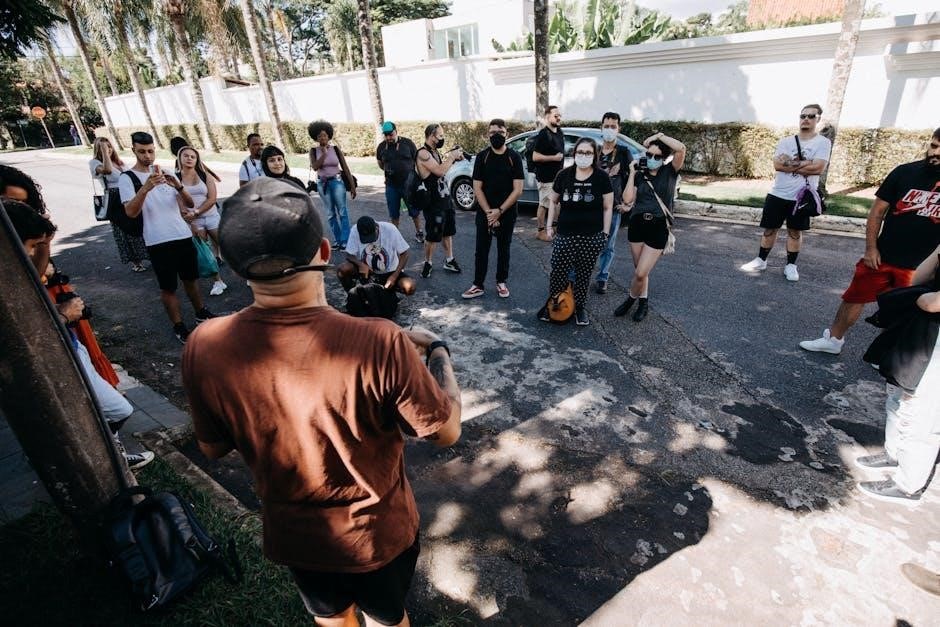
Becoming a Filipina Tour Guide: Qualifications & Training
Aspiring guides often pursue Tour Guiding Services NC II certification, requiring a high school diploma and a certified true copy of academic records.
National Certifications: Tour Guiding Services NC II
The Tour Guiding Services NC II is a nationally recognized certification in the Philippines, crucial for individuals aspiring to become professional tour guides. This qualification, administered by the Technical Education and Skills Development Authority (TESDA), validates a tour guide’s competence in delivering informative and engaging tour experiences.
To obtain this certification, candidates undergo rigorous training covering various aspects of tour guiding, including Philippine history, culture, geography, and customer service. The curriculum emphasizes effective communication skills, safety protocols, and ethical considerations. Successful completion of the assessment demonstrates a guide’s ability to handle diverse tourist groups, manage logistical challenges, and provide accurate information about destinations.
Possessing this certification significantly enhances a Filipina tour guide’s credibility and marketability, assuring potential clients of their professionalism and expertise. It’s often a prerequisite for employment with established tour operators and agencies throughout the country.
Educational Requirements & Background
While there isn’t a single, strictly mandated educational background for Filipina tour guides, a high school diploma is generally considered the minimum requirement. However, many successful guides possess a bachelor’s degree, often in fields like History, Tourism, Literature, or Communication Arts. These degrees provide a strong foundation in the knowledge and skills essential for effective tour guiding.
A relevant academic background demonstrates a commitment to learning and a deeper understanding of the cultural and historical context of the Philippines. Beyond formal education, practical experience is highly valued. Many aspiring guides begin by volunteering at museums, historical sites, or tourism offices to gain hands-on experience and build their knowledge base.
A strong understanding of Philippine culture, traditions, and local languages is also beneficial, enhancing a guide’s ability to connect with tourists and provide authentic experiences.
Language Proficiency – Beyond English
While English proficiency is a fundamental requirement for Filipina tour guides catering to international tourists, fluency in additional languages significantly enhances their capabilities and marketability. Tagalog, the national language, is essential for interacting with local communities and understanding nuanced cultural contexts.
Furthermore, knowledge of regional languages like Cebuano, Ilocano, or Hiligaynon allows guides to connect with diverse populations within the Philippines and offer more personalized experiences. Increasingly, guides are learning Mandarin, Korean, or Japanese to cater to growing tourist demographics from these countries.
Beyond basic conversation, a strong command of grammar and vocabulary is crucial for delivering accurate information and engaging storytelling. The ability to translate cultural nuances and facilitate communication between tourists and locals is a valuable asset.
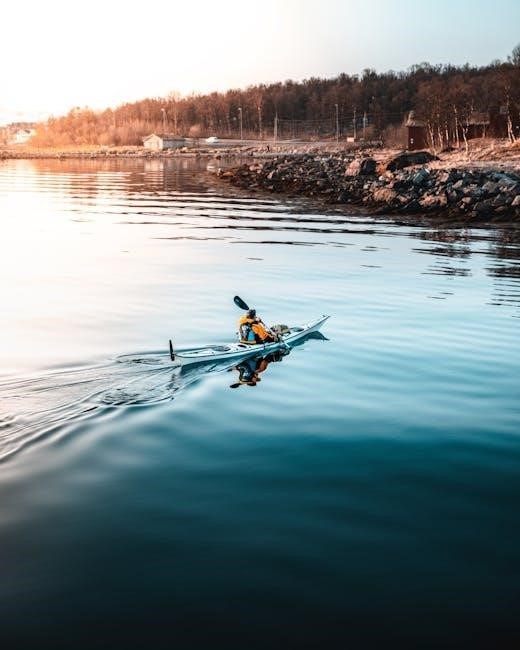
Popular Destinations & Tour Types
Filipina tour guides expertly lead explorations of Manila’s history, Siargao’s adventures, and Bohol’s natural wonders, offering diverse and enriching travel experiences.
Manila: Historical and Cultural Tours
Filipina tour guides truly shine when showcasing Manila, expertly navigating its complex history and vibrant culture. They bring to life the walled city of Intramuros, detailing its Spanish colonial past through captivating storytelling and insightful commentary. Guides often lead visitors through Fort Santiago, Rizal Park, and the iconic San Agustin Church, a UNESCO World Heritage site.
Beyond the historical landmarks, Filipina guides immerse tourists in Manila’s modern cultural scene, exploring bustling markets like Binondo Chinatown – the oldest Chinatown in the world – and showcasing local artistry. They provide context to the city’s diverse influences, from Spanish and Chinese to American and indigenous Filipino traditions. These guides don’t just present facts; they share personal anecdotes and perspectives, creating a deeply engaging and memorable experience for every traveler.
Siargao: Adventure and Island Hopping
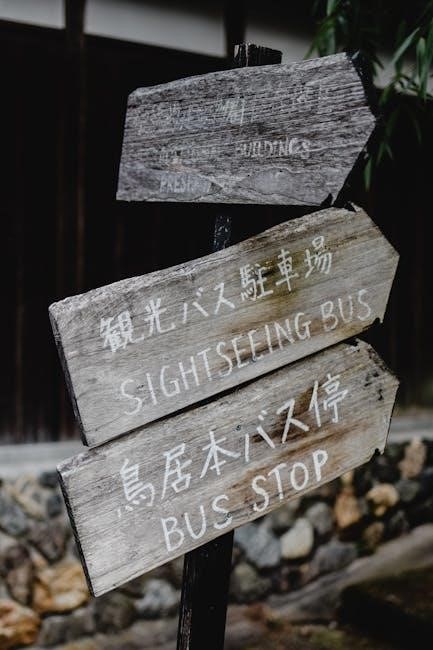
Filipina tour guides are essential for unlocking the magic of Siargao, the surfing capital of the Philippines. They expertly facilitate thrilling adventures, from navigating the famous Cloud 9 waves – offering guidance for surfers of all levels – to organizing exhilarating island-hopping excursions. Guides possess intimate knowledge of the best surfing spots, hidden lagoons, and pristine beaches like Guyam, Daku, and Naked Island.
Beyond surfing, Filipina guides lead explorations of Siargao’s natural wonders, including the Magpupungko Rock Pools and the Sugba Lagoon. They ensure safety during water activities and share insights into the local marine ecosystem. Their local connections also provide access to authentic cultural experiences, introducing visitors to the island’s laid-back lifestyle and warm hospitality, creating unforgettable memories.
Bohol: Chocolate Hills & Tarsier Sanctuaries
Filipina tour guides are invaluable when exploring Bohol’s iconic landscapes, particularly the Chocolate Hills and the Philippine Tarsier Sanctuaries. They provide detailed explanations of the geological formations of the hills, sharing local folklore and the science behind their seasonal transformation. Guides ensure responsible tourism at the Tarsier Sanctuaries, emphasizing the importance of respecting these tiny, nocturnal primates and their fragile habitat.
Beyond these landmarks, Filipina guides curate immersive experiences, including visits to the Loboc River for a scenic cruise with local entertainment, and explorations of historic churches like the Baclayon Church. They navigate the island efficiently, offering insights into Boholano culture, cuisine, and traditions, enriching the visitor’s understanding and appreciation of this beautiful province.

The Role of Filipina Tour Guides in the Tourism Industry
Filipina tour guides significantly contribute to the Philippines’ tourism sector, fostering economic growth and showcasing the nation’s cultural heritage with passion.
Economic Impact & Community Involvement
Filipina tour guides are pivotal in driving economic benefits within local communities throughout the Philippines. Their work directly supports numerous small businesses, from transportation services and local eateries to handicraft vendors and accommodation providers. By choosing local guides, tourists contribute to a more equitable distribution of wealth, ensuring that tourism revenue reaches those who need it most.
Furthermore, many Filipina tour guides actively participate in community development initiatives. They often volunteer their time and expertise to promote sustainable tourism practices, environmental conservation efforts, and cultural preservation projects. This involvement extends beyond simply showcasing attractions; it encompasses a genuine commitment to safeguarding the Philippines’ natural and cultural treasures for future generations. They empower communities by fostering pride in their heritage and creating opportunities for economic advancement, solidifying their role as vital stakeholders in the tourism ecosystem.
Promoting Responsible Tourism
Filipina tour guides are increasingly at the forefront of promoting responsible tourism practices within the Philippines. They educate visitors about the importance of respecting local cultures, minimizing environmental impact, and supporting ethical businesses. This includes advocating for mindful interactions with communities, discouraging exploitative practices, and encouraging the purchase of locally-made products.
Many guides actively champion sustainable initiatives, such as waste reduction, water conservation, and the protection of fragile ecosystems. They emphasize the need to preserve the Philippines’ natural beauty and cultural heritage for future generations. By fostering a sense of awareness and responsibility among tourists, Filipina tour guides contribute to a more sustainable and equitable tourism industry, ensuring that its benefits are shared by all, while minimizing negative consequences for the environment and local communities.
Addressing Misconceptions & Stereotypes
Filipina tour guides play a crucial role in dismantling harmful misconceptions and stereotypes often associated with Filipino women; They challenge pre-conceived notions by showcasing their professionalism, intelligence, and diverse skillsets. Guides actively present a nuanced portrayal of Filipino culture, moving beyond simplistic or sensationalized representations often found in media.
They address problematic narratives surrounding relationships and employment, highlighting the agency and aspirations of Filipino women. By sharing personal stories and historical context, they foster a deeper understanding and appreciation for the complexities of Filipino society. Through respectful dialogue and authentic interactions, Filipina tour guides empower visitors to question their biases and embrace a more informed perspective, contributing to a more equitable and respectful global understanding.
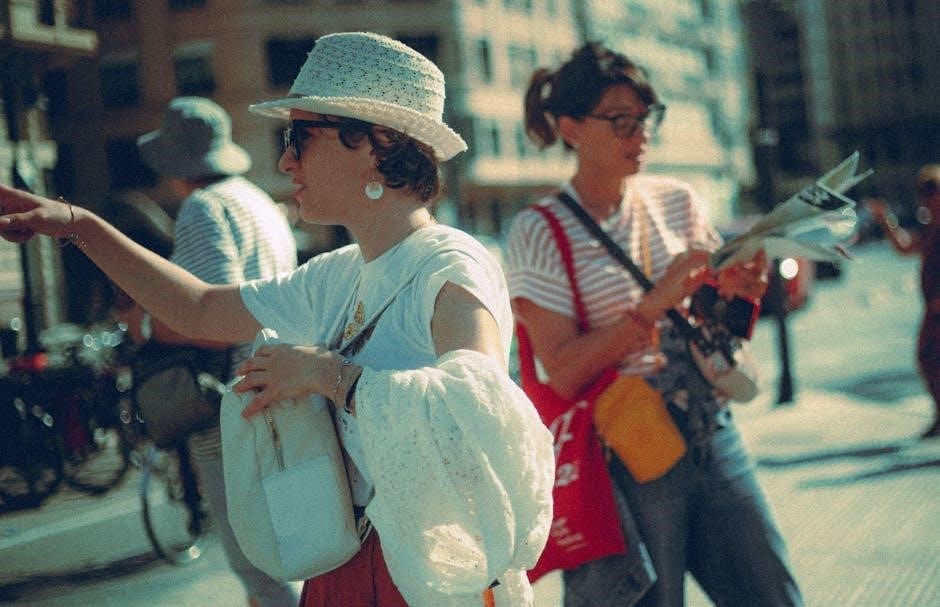
Finding & Hiring a Filipina Tour Guide
Filipina tour guides are accessible through online platforms, agencies, and freelance networks, offering diverse expertise and personalized experiences for every traveler’s needs.
Online Platforms & Agencies
Numerous online platforms specialize in connecting travelers with qualified Filipina tour guides. These platforms often feature detailed profiles, including experience, languages spoken, tour specialties, and verified reviews from previous clients. Agencies, both local and international, provide a curated selection of guides, handling logistics and ensuring quality control.
Popular options include sites dedicated to Filipino tourism, as well as broader travel platforms that host a range of guides. When selecting a platform or agency, consider factors like commission fees, cancellation policies, and the level of support offered. Thoroughly review guide profiles, paying attention to certifications like Tour Guiding Services NC II, and read client testimonials to gauge their reliability and expertise. Agencies often offer pre-packaged tours, while platforms allow for more customized itineraries. Remember to confirm the guide’s availability and discuss your specific interests and preferences before finalizing your booking.
Freelance Tour Guides & Recommendations
Beyond agencies, a thriving network of freelance Filipina tour guides operates throughout the Philippines. These guides often offer a more personalized and flexible experience, allowing for tailored itineraries based on your specific interests. Recommendations from fellow travelers, online forums, and social media groups are invaluable resources for finding reputable freelancers;
Networking within expat communities or through hotel concierge services can also yield excellent recommendations. When contacting a freelance guide, inquire about their qualifications, experience, and knowledge of the destinations you plan to visit. Discuss your expectations clearly, including the pace of the tour, preferred activities, and any dietary restrictions. Establishing clear communication upfront ensures a smooth and enjoyable experience. Always prioritize guides with verifiable credentials and positive feedback from previous clients, ensuring both safety and a culturally enriching journey.
Cost Considerations & Negotiation
The cost of a Filipina tour guide varies significantly depending on factors like duration, destination, tour type (private vs. group), and the guide’s experience level. Expect to pay anywhere from PHP 1,500 to PHP 5,000 (approximately $25-$85 USD) per day for a private guide, though prices can be higher for specialized tours or remote locations. Agency-booked tours typically have fixed rates, while freelance guides may be open to negotiation.
When negotiating, be respectful and consider the guide’s expertise and the value they bring to your experience. Clarify what the fee includes – transportation, entrance fees, meals, and tips. It’s customary to offer a tip (10-15%) for exceptional service. Remember that supporting local guides directly contributes to the community’s economic well-being. Transparently discussing costs and expectations ensures a fair and mutually beneficial arrangement for both parties involved.

Safety & Ethical Considerations
Filipina tour guides prioritize tourist safety, cultural respect, and responsible tourism, advocating for ethical interactions and supporting local businesses within communities.
Tourist Safety & Security
Filipina tour guides play a crucial role in ensuring tourist safety and security throughout their journeys. They are often well-versed in local conditions, potential risks, and emergency procedures, providing invaluable assistance to travelers. Guides proactively assess situations, offering advice on safeguarding belongings and navigating unfamiliar environments.
They maintain awareness of current events and potential threats, adapting itineraries as needed to avoid unsafe areas. Furthermore, knowledgeable guides establish connections with local authorities and emergency services, facilitating swift responses in critical situations. They also educate tourists about common scams and provide guidance on responsible behavior to minimize vulnerability.
A good guide will always prioritize the well-being of their group, fostering a secure and enjoyable experience while showcasing the beauty and hospitality of the Philippines. Their dedication contributes significantly to a positive and memorable trip for every visitor.
Ethical Interactions & Respect for Culture
Filipina tour guides champion ethical interactions and profound respect for the Philippines’ diverse cultures. They emphasize responsible tourism, educating visitors on local customs, traditions, and sensitivities. Guides actively discourage behaviors that could be disrespectful or exploitative, promoting genuine cultural exchange.
They advocate for supporting local businesses and communities, steering tourists towards authentic experiences that benefit residents directly. A key aspect is fostering understanding of the historical context and social nuances of each region visited. Guides skillfully navigate potentially sensitive topics, offering informed perspectives and encouraging thoughtful engagement.
By promoting mindful interactions, they help preserve cultural heritage and ensure tourism contributes positively to the well-being of local communities, creating a more enriching experience for everyone involved.
Supporting Local Businesses & Communities
Filipina tour guides actively prioritize supporting local businesses and communities throughout their tours. They intentionally guide visitors to family-owned restaurants, artisan shops, and locally-run accommodations, ensuring tourism revenue directly benefits residents. This commitment extends to recommending transportation options that favor local drivers and operators.
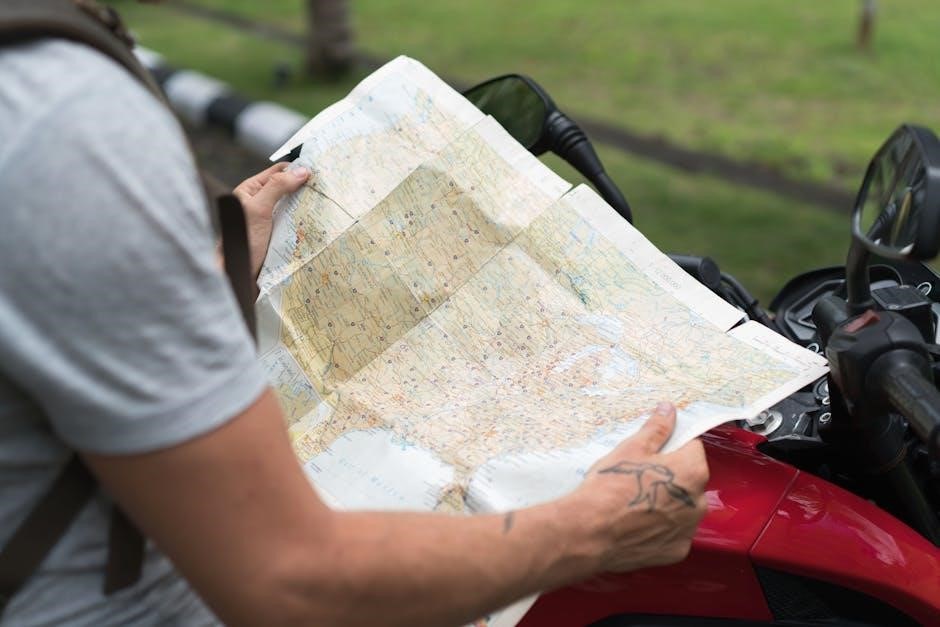
Guides often share insights into the stories behind these businesses, highlighting the skills and traditions passed down through generations. They encourage responsible purchasing, advising tourists to buy directly from producers and avoid exploitative practices.
By consciously choosing to support local enterprises, Filipina tour guides contribute to economic empowerment and sustainable development within the communities they serve, fostering a more equitable and enriching tourism experience for all.
